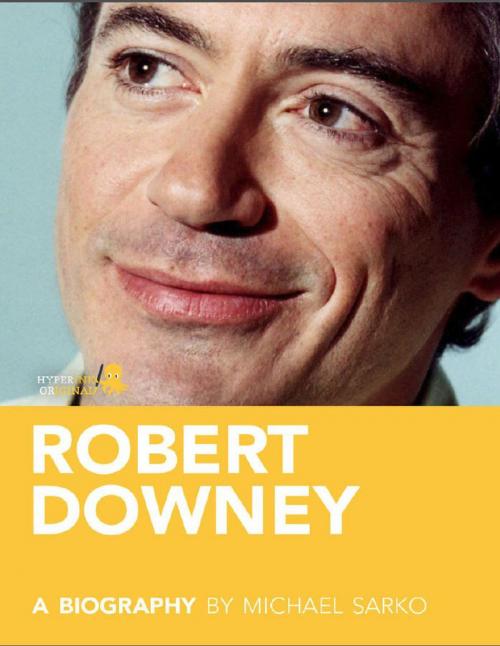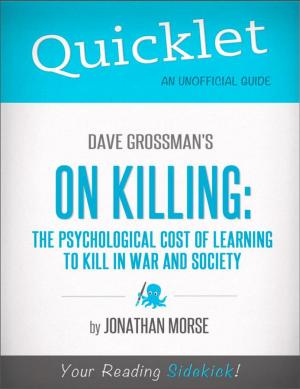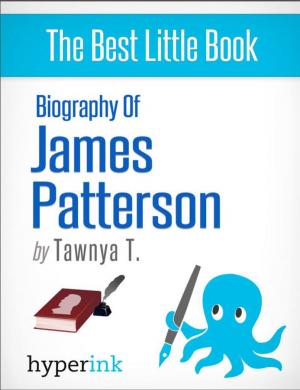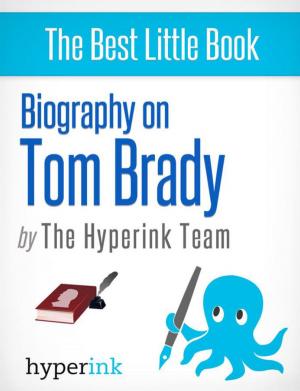Robert Downey, Jr.: A Biography: Learn about the life and adventures of Robert Downey, Jr.
Nonfiction, Entertainment, Performing Arts, Biography & Memoir, Entertainment & Performing Arts| Author: | Michael Sarko | ISBN: | 9781614646327 |
| Publisher: | Hyperink | Publication: | July 30, 2012 |
| Imprint: | Hyperink - Robert Downey, Jr. Bio | Language: | English |
| Author: | Michael Sarko |
| ISBN: | 9781614646327 |
| Publisher: | Hyperink |
| Publication: | July 30, 2012 |
| Imprint: | Hyperink - Robert Downey, Jr. Bio |
| Language: | English |
ABOUT THE BOOK
One way or another, Robert Downey Jr.'s reputation as a drug addict and a playboy has been an essential aspect of his career and public persona since he broke out in the 1980s. The influence of his habits is unquestionable, from the way his real-life struggle with substance abuse mirrored his character Julian's rapid deterioration in Less Than Zero to the winking acknowledgment of his past problems in more recent roles like hard-living hero Tony Stark in the Iron Man franchise and literary cocaine icon Sherlock Holmes. Downey has been showered with critical accolades, award nominations and big paychecks on both sides of addiction. The real question is whether his audience prefers him as a fascinating scoundrel or a delightfully profane poster boy for redemption, and if it's even possible to have one without the other.
When Mel Gibson made headlines in 2006 for a drunk driving arrest and the antisemitic rant that followed, Robert Downey Jr. was at the head of a very short line of people in Hollywood to come to his defense. Downey and Gibson met on the set of Air America and would be close friends ever since. Gibson told W Magazine in 2007, “He was one of the first people to call and offer the hand of friendship. He just said, ‘Hey, welcome to the club. Let's go see what we can do to work on ourselves.”
That was the voice of today's Robert Downey Jr. That was the man post-rehab, post-prison, post-divorce and post-disaster that very nearly ruined his career. That was the voice of the man who couldn't get a gig in the movie business for two solid years until Mel Gibson footed the toxic insurance bill for Downey's role as the lead in 2003's most important flop, The Singing Detective.
Robert Downey Jr. spent significant periods of time between 1996 and 2001 in rehabilitation centers and prison, resulting in so many high-profile legal battles and breached contracts that he struggled to get any work at all following his release from the Corcoran II drug treatment facility. In the three years following his lauded supporting performance in Wonder Boys (2000), Downey's only screen credits were three short films and a run on the Fox series Ally McBeal that ended with him being fired for drug-related behavioral problems. This led to years of trouble qualifying for the insurance coverage that has become de rigueur for A-list actors signing onto a major motion picture. When Mel Gibson vouched for Downey during the production of The Singing Detective, he was putting his own career on the line as well. The film may have crashed critically and financially, but it put Robert Downey Jr. back on the silver screen.
The Singing Detective was an adaptation of a BBC miniseries of the same name. It was the kind of project that could have been great but was ultimately doomed to fail. It got batted around Hollywood for years being toyed with and ultimately passed up by the likes of David Cronenberg and Robert Altman until it landed at Icon Productions, the company Mel Gibson formed with Bruce Davey, a fellow Aussie in the film business. Dennis Potter, who wrote the original Singing Detective, had been dead for a decade by the time director Keith Gordon brought it to the screen in the U.S.
The result was a jumbled mess of postmodern storytelling that abandoned the irony and allusions to World War II England that made the BBC production resonate beyond its intentionally disorienting conceits. The story of a pulp mystery novelist who escapes the pain of advanced psoriasis through fantasy, The Singing Detective is a mess on the screen but a fascinating (if unintentional) reflection of its star. Robert Downey Jr. not only grew up in front of the camera, he has often been indistinguishable from the characters he plays...
...buy the book to keep reading!
ABOUT THE BOOK
One way or another, Robert Downey Jr.'s reputation as a drug addict and a playboy has been an essential aspect of his career and public persona since he broke out in the 1980s. The influence of his habits is unquestionable, from the way his real-life struggle with substance abuse mirrored his character Julian's rapid deterioration in Less Than Zero to the winking acknowledgment of his past problems in more recent roles like hard-living hero Tony Stark in the Iron Man franchise and literary cocaine icon Sherlock Holmes. Downey has been showered with critical accolades, award nominations and big paychecks on both sides of addiction. The real question is whether his audience prefers him as a fascinating scoundrel or a delightfully profane poster boy for redemption, and if it's even possible to have one without the other.
When Mel Gibson made headlines in 2006 for a drunk driving arrest and the antisemitic rant that followed, Robert Downey Jr. was at the head of a very short line of people in Hollywood to come to his defense. Downey and Gibson met on the set of Air America and would be close friends ever since. Gibson told W Magazine in 2007, “He was one of the first people to call and offer the hand of friendship. He just said, ‘Hey, welcome to the club. Let's go see what we can do to work on ourselves.”
That was the voice of today's Robert Downey Jr. That was the man post-rehab, post-prison, post-divorce and post-disaster that very nearly ruined his career. That was the voice of the man who couldn't get a gig in the movie business for two solid years until Mel Gibson footed the toxic insurance bill for Downey's role as the lead in 2003's most important flop, The Singing Detective.
Robert Downey Jr. spent significant periods of time between 1996 and 2001 in rehabilitation centers and prison, resulting in so many high-profile legal battles and breached contracts that he struggled to get any work at all following his release from the Corcoran II drug treatment facility. In the three years following his lauded supporting performance in Wonder Boys (2000), Downey's only screen credits were three short films and a run on the Fox series Ally McBeal that ended with him being fired for drug-related behavioral problems. This led to years of trouble qualifying for the insurance coverage that has become de rigueur for A-list actors signing onto a major motion picture. When Mel Gibson vouched for Downey during the production of The Singing Detective, he was putting his own career on the line as well. The film may have crashed critically and financially, but it put Robert Downey Jr. back on the silver screen.
The Singing Detective was an adaptation of a BBC miniseries of the same name. It was the kind of project that could have been great but was ultimately doomed to fail. It got batted around Hollywood for years being toyed with and ultimately passed up by the likes of David Cronenberg and Robert Altman until it landed at Icon Productions, the company Mel Gibson formed with Bruce Davey, a fellow Aussie in the film business. Dennis Potter, who wrote the original Singing Detective, had been dead for a decade by the time director Keith Gordon brought it to the screen in the U.S.
The result was a jumbled mess of postmodern storytelling that abandoned the irony and allusions to World War II England that made the BBC production resonate beyond its intentionally disorienting conceits. The story of a pulp mystery novelist who escapes the pain of advanced psoriasis through fantasy, The Singing Detective is a mess on the screen but a fascinating (if unintentional) reflection of its star. Robert Downey Jr. not only grew up in front of the camera, he has often been indistinguishable from the characters he plays...
...buy the book to keep reading!















